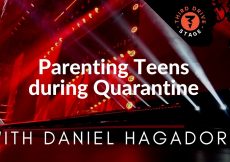Attention deficit hyperactivity disorder (ADHD) is a neurodevelopmental disorder that is not directly associated with food, meaning there are no known foods that can cause or cure ADHD symptoms. However, some studies indicate that certain foods and nutrients may affect the child’s behavior by altering their mood and self-control.
Learning about such foods can be beneficial in planning an ADHD diet for children. A healthy, well-balanced ADHD diet can regulatea child’s behavior and support their proper growth and development.
This post includes tips for planning a nutritious ADHD diet for kids. It also features a list of foods you should include in the diet and foods you should avoid.
Foods To Include In The ADHD Diet
There isn’t a specific food that can cure or alleviate ADHD symptoms. According to some studies, a western-style diet high in fat and refined sugar is associated with an increased risk of ADHD, while a Mediterranean diet rich in fruits, vegetables, whole grains, legumes, seafood and olive oil is known to have an inverse relation with ADHD. Hence, parents should focus on making the child’s daily diet nutritious.
A well-balanced ADHD diet should contain various healthy foods from different food groups and provide the following nutrients.
1. Complex carbohydrates
Complex carbs are carbs that the body digests slowly, causing a steady release of glucose (simple sugars) into the bloodstream. A steady release of glucose is essential to regulate hunger. Whole grains and cereals, legumes, fruits, and starchy vegetables are good sources of complex carbohydrates. So, add these foods to your child’s diet in moderation and as a part of a healthy and wholesome diet.
2. Lean protein
Protein is the building block of life and helps regulate many functions in the body, from cell regeneration to enzyme production. Add healthy sources of protein, such as beans, legumes, tofu, low-fat dairy, egg white, chicken, fish, and nuts, to your child’s daily diet for muscle growth. Children between four and 14 years require 19 to 46grams of protein per day.
3. Healthy fats
Children between four to 14 years of age should receive25 to 35 percent of their total daily energy from fats. Of these, less than ten percent should come from saturated fats and the remaining from unsaturated fats. Fats are essential for humans for several reasons, including aiding the absorption of fat-soluble vitamins A, D, E, and K.
So, feed unsaturated fats, such as MUFA and PUFA, in the right proportions to a child. And ensure you include omega-3 fatty acids (PUFA), which may reduce symptoms of ADHD. Some of the good sources of omega-3 fatty acids include
- Fatty fish (tuna and salmon)
- Nuts, such as walnuts
- Seeds, such as chia and flax seeds
4. Vitamins and minerals
Low zinc and iron levels are often associated with ADHD. However, there’s no concrete evidence that deficiency of any vitamin or minerals causes ADHD. Nevertheless, some studies indicate that micronutrient supplementation may improve certain symptoms of ADHD, such as inattention. Additionally, consuming micronutrients, in general, is necessary for overall health and well-being.
Thus, ensure you give your child all the vital micronutrients in the right amounts. Some micronutrients that are crucial during childhood and teenage include vitamin D, vitamin B6, calcium, zinc, iron, and magnesium. Fruits, dried fruits, vegetables, whole grains, low-fat dairy, seafood, seeds, and nuts can offer you these and several more micronutrients in abundance. So, ensure you feed your child a variety of foods.
Now that you know the foods you should add to your child’s diet, know the foods that you should avoid or limit.
Foods To Limit Or Avoid
Eliminating any food from the diet doesn’t cure ADHD. However, some studies and anecdotal evidence demonstrate that removing certain unhealthy foods from the diet (elimination diet) may improve some symptoms of ADHD. Eliminating some of the following foods and food ingredients might alleviate a child’s ADHD symptoms.
1. Artificial food colors and dyes
Several processed and packaged foods have artificial food colorings and dyes. These additives make the food look colorful and attractive, but they may exacerbate ADHD symptoms. The exact mechanism of how these chemical-based colors and dyes affect ADHD is unknown. Yet, keeping the intake of foods containing artificial colors and dyes at a minimum is a positive recommendation for every child.
2. Refined sugar
Some parents believe that high sugar consumption causes hyperactivity in children, especially those with ADHD. However, experts state that hyperactivity and high sugar intake aren’t correlated. Yet, in general, a high sugar diet isn’t good for anyone, let alone children.
Research shows that high sugar intake in childhood exposes a child to chronic health issues, such as obesity, tooth decay, and type-2 diabetes. Hence, limiting your child’s sugar intake is a wise decision.
3. Caffeine
Caffeine is a natural stimulant that can adversely affect the central nervous system and heart when consumed in large amounts. It is why the American Academy of Pediatrics (AAP) advises against the use of caffeine or caffeinated beverages, such as soft drinks, for children under five years of age. However, for children with ADHD, caffeine has shown effectiveness in improving functioning and reducing hyperactivity. However, caffeine can amplify the effect of ADHD medications, and its excessive intake can have side effects, such as appetite suppression and insomnia, which can worsen ADHD symptoms. Thus, children should avoid caffeine and caffeinated products. As for the use of caffeine for improving ADHD symptoms, it’s a matter one should discuss with a pediatrician.
4. Allergens
Some children with ADHD may have sensitivity or intolerance to specific foods, such as salicylate-containing foods (tomato and grapes) and common allergens such as milk, soy, seafood, wheat, and peanuts. A cross-sectional study conducted on school children concluded that “early food allergy is associated with ADHD.”
Thus, eliminating foods that cause sensitivity may help. However, do it under pediatric guidance as the intervention may not be helpful for children with ADHD who aren’t allergic or sensitive to foods.
Tips To Provide A Healthy ADHD Diet For Children
Managing a child with ADHD can be overwhelming, and perhaps that’s why several parents struggle to organize and plan their child’s diet. Here are some useful tips that may help you plan their diet and encourage healthy eating in children with ADHD.
- Follow a routine: Children with ADHD struggle with planning, organizing, and scheduling activities. Therefore, following a routine is a good way to make them more organized. You could try serving meals at the same time daily. In addition, ensure the meals are colorful and flavorful so that children look forward to eating.
- Never skip meals: Skipping meals can cause a dip in energy levels and trigger overeating, especially junk foods such as chips and cookies. So, a child must eat well-balanced meals at regular intervals. When you plan and prepare these meals, involve your child so that they may understand and appreciate food’s versatility and importance.
- Serve your child a well-balanced diet. Well-balanced meals are those that contain various healthy foods from different food groups. For instance, whole grain cereals, fruits, veggies, nuts, seeds, and low-fat dairy products are a source of macro and micronutrients that children need to grow and develop. So, pay attention to what your child is eating and how you can make it wholesome.
- Avoid ultra-processed foods: Ultra-processed foods are high in fat and sugar. Besides, they contain additives, such as artificial food colors, and preservatives, which may have an impact on your child’s behavior. So, limit your child’s intake of processed foods and encourage them to eat healthy foods. Instead, offer them healthy snacks that are filling. Here are some healthy options that you can provide to your child:
-
- Fresh seasonal fruits, such as banana, apple, papaya, dragon fruit, plum, peach, and nectarines
- Low-fat, unsweetened yogurt with fruits, homemade smoothies, and shakes
- Dried fruit with no added sugar
- Air-popped, saltless popcorns
- Baked vegetables
- Whole-grain chips
- Roasted chickpeas
- Seeds and nuts trail mix
- High-fiber cereals with dried fruits and nuts
- Boiled/steamed/sauteed veggies with homemade dips, such as hummus and baba ghanoush
Whatever healthy snacks you plan to feed your child, ensure you provide them with two to three healthy snacks and let them decide what they want to eat. Then, keep these foods in easy access so that your child can eat them whenever they are hungry.
- Be a role model for your child: Children, irrespective of whether they have ADHD or not, learn from mimicking. So, display responsible eating behavior to your child and let them follow in your footsteps. While eating at home or dining in a restaurant, pick healthy foods, such as lean meat, fish, veggies, and whole grains. Eat together as much as possible to let them have healthy home-cooked food – -this also helps you spend quality time together.
- Train your child to read food labels: Many over-the-counter products contain ingredients that aren’t healthy for children. Hence, reading food labels is vital to make informed choices. So, let your child accompany you during grocery shopping and show them the right way to read and depict food labels. Tell them to avoid products containing refined grains, sugar, hydrogenated and trans fats, high amounts of sodium, and additives, such as artificial food colors or dyes and preservatives.
- Consult a diet expert. A certified nutritionist who works predominantly with ADHD patients can help you develop a customized diet plan for your child. In addition, they can help a child with ADHD recognize, understand, and rectify their dietary issues. Furthermore, they can also guide you regarding dietary or nutritional supplement use for your child, if necessary.
No food can cause or cure ADHD. Yet, adopting healthy eating practices is vital for children to grow and thrive. It becomes even more critical if your child has ADHD, as children with ADHD often face issues maintaining an optimum nutritional status.
So, ensure your child eats various healthy foods in moderation and avoid excessive refined sugar, unhealthy fats, and salt. These changes can help a child with ADHD stay healthy and fit in the long term.
References:
MomJunction’s health articles are written after analyzing various scientific reports and assertions from expert authors and institutions. Our references (citations) consist of resources established by authorities in their respective fields. You can learn more about the authenticity of the information we present in our editorial policy.



































